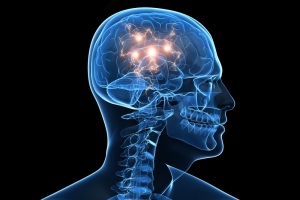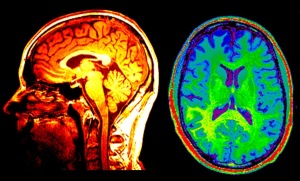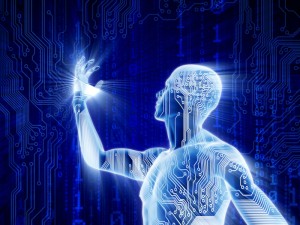Question #11 How the Soul and Brain Interact
(Follow up question from question #10)
Question from Jared:
In both scenarios [a person in the car controlling the car but is not the car and a musician playing a guitar who will keep his talent even if the guitar breaks because the talent is not in the guitar. It is merely the instrument through which his talent is conveyed.] the person is the soul, and the car or instrument is the body. And in both of these scenarios, supposing we couldn’t see the person, we could still see the effects of the person directly on the object. We could see the guitar string bring pressed, even if we couldn’t see what was pressing it. We see the steering wheel turn and the petals depress. Is there something like this we see in the brain?
I don’t think this implies a link, like you said that would make an infinite regress. But we 
Response: Thank you Jared once again for your insightful question as I’m sure other people may have the same question.
Now that I better understand your question let me first make a case for the mind/soul being separate from the brain to catch up other readers that may be interested in this subject.
I have already discussed the existence of the soul independent from the material body (which includes the brain) based on the existence of free will so I will leave that for readers to see question #10 and #9. Rather, lets now talk about a quicker philosophical approach to show that the brain and mind (or soul) are independent from the brain based on G.W. Leibniz Law of the Indiscernibility of Identicals, which we can call the law of identity for short. He says that for any entity, we’ll call it X and Y, that are identical (meaning they are the same thing. One thing not two), then whatever is true of X must be true of Y and vice versa. So for example, lets say the person writing this response is identical (that is the same) as Eric Hernandez, then whatever is true of the person 
That being we can apply this test to the brain and mind. If we can find one thing true of the brain that is not true of the mind then we can show that the two are not the same and are in fact two different entities. This is easy to show. A brain state has physical properties like having a mass, weight, size, shape, neuron firings and so forth which can be measured. A mental state, however, are things like thoughts, feelings, beliefs, and so forth. Well we can quickly see the difference in properties. I can measure a brain state such as a mass, but I can not measure a thought. It would make no sense to ask, “How many inches long is the thought of a rose?” Also, a thought can be true or false. I can have the thought, “Today is Monday” and it can be true or false. In contrast, a brain state, say a neuron firing, cannot be true or false much like a coke bottle fizzing is not true or false. So with a few examples alone we have shown that the brain and mind are in fact not identical. That is to say they are not the same thing. This now gets to your question, Jared. How does the soul/mind use the brain and can we see the effects on it? The answer is yes. Philosopher and theologian, J.P. Moreland, who I am a strong admirer of, is an expert in this field of study and who’s work I have benefited greatly from.
Let me answer your question in a quick response, then go into some interesting leading research that has shown the application of this dualistic understanding. Space won’t allow for me to go too in-depth (it’s a huge field of study) but I think it’ll be enough to give you a satisfactory answer. Yes, much like in the analogy of the man in the car or musician and the instrument, we do see physical things happening in the brain caused by the mind/soul. We can look through a brain scan and ask a person to think about love and see what part of their brain lights up. Then we write down, section x is associated with love. Then we may ask, think of something you hate, then another region of the brain lights up. We then write down, section y is associated with hate and so forth. This is how we have mapped and learned what parts of our brain is associated with certain feelings, thoughts, emotions, or memories. This is NOT to say that memory is stored in your 
Neuroscience has given us useful information on the correlation of the mind and brain. Jeffery Schwartz is one of the worlds leading neuroscientist and is also substance dualist (the view that the brain and mind are two different things) and has even written books on the matter including one called “You Are Not Your Brain”. He specializes in the research of Obsessive Compulsive Disorder (OCD). With his understanding of the brain and mind interaction he conducted a test in which he prescribed mental exercises for patients with OCD for treatment. See, every time we have a thought, feeling, or any mental experience, there is a neuron firing and correlation that goes on in the brain. 
In summary, yes the souls interaction on the brain can be seen in a correlative way and has casual interaction as does the brain on the soul. Thank you again for the question and I apologize for the lengthy answer. The soul and body interaction has been a passionate topic of mine that I have attempted to do sufficient research on these past couple of years.
-Eric Hernandez
Got a question? Submit any questions regarding God, Philosophy, Apologetics, Theology, Christianity, or the like to our ministry via Facebook, Instagram, Youtube or our Website. Thank you and God bless.
Related Post


Hey, I’m not sure how I found this page. I have a bunch of tabs that I open form random google searches and pages people link me to and whatever. The tab for your site was there for a while, I just now got around to reading it.
I like your explanation of the Law of the Indiscernibility of Identicals. Basically we have to be able to come up with something that separates two things.
I have one question and a comment.
You said that brain state cannot be true or false. To me that sounds like “matter cannot be true or false” (correct me if I’m wrong here.. But what about if we look at a map. A map is just paper with markings on it, so it is just matter. Can’t you say that the map is true or false though? Like this map accurately reflects what Disneyland looks like so it is a true map. Or this map is missing the new Diagon Alley so it is false. Maybe you would call it something else? Or maybe that is true but it doesn’t really apply to the brain?
Comment
I liked when you said ‘form small grooves in the brain’. The example you gave makes me think of the brain activity as a flowing river. And then the mind comes in and it’s like throwing a giant boulder in the river, and it actually changes how the river flows.
Yes that is correct. Matter can not be true or false. Letters are also not true or false. However, the propositions carried by words which make sentences can be true or false. First we have to understand what truth is. For that we use the correspondence theory of truth which says we have truth when something corresponds accurately with reality. So if i said grass is green, it is only true because that does in fact correspond with what actual is. the same would apply to your make example. Ink and paper can not be true or false but the data that it is attempting to convey is true or false based on how accurately it reflects reality.
Ah yes correspondence theory of truth makes sense. Thanks for sharing that.
So the matter creates a representation. And the representation can correspond (or not correspond) to reality.
So if ink on paper can make a representation, can a brain state make a representation?
Would you consider a representation to be the same as a thought? Maybe thoughts are represented by brain states and other thoughts can be represented by all sorts of matter.